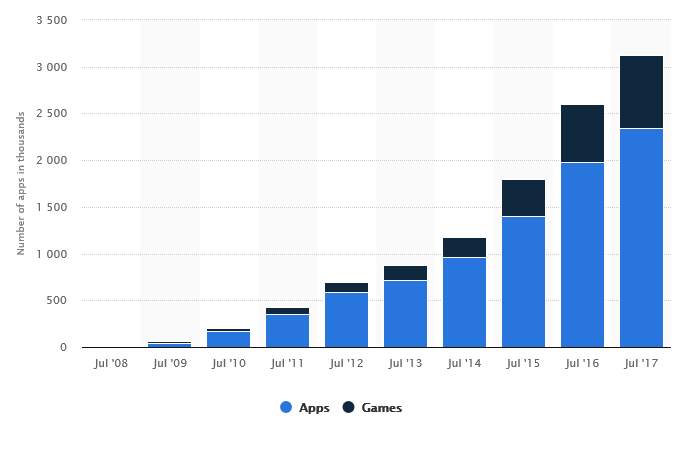The Layman's Guide to Gaming – Part 1 – The Internet, Entertainment, and Parental Responsibility
In the modern age we are constantly surrounded by an ever-growing cloud of technology. Mobile communication and the internet have become ubiquitous in society, revolutionising each element of our social order in turn as they permeate it further and further. Personally targeted advertisements were once a humorous element of science fiction but we now find ourselves in a time when they are a very real part of our everyday internet consumption (looking at you, Facebook).

Rather than focusing on the more perverse elements of our techno-dependant lives such as advertising and privacy invasion, I'd like to take this article in a completely different direction – one that you've likely never taken the time to properly consider: Entertainment, and games in particular.
Just as advertising, the information gathering industry and shopping have changed forever with the advent of global communication, so too has the entertainment industry. We have gone from an insulated society that consumes entertainment based on a curated narrative of what is acceptable to a global community that consumes whatever they want, whenever they want it. “On Demand” entertainment has delivered us a seemingly endless spectrum of content choices, whilst simultaneously placing the responsibility of deciding what’s appropriate for ourselves squarely in our own hands.
As adults, the idea of being in charge of our own content moderation is generally liberating. As Mark Twain is often misquoted as saying, “Censorship is like telling a man he can’t have a steak because his baby can’t chew it”, and if anyone is going to decide if I’m allowed to eat steak I’d prefer it to be me. The problem with this idea in this particular context is that Mark Twain left us in 1910, long before the Internet arrived. Obviously, globalised communication is no argument in favour of censorship – so where does the idea fall down?

Let’s stick to our steak analogy, and for fun, we’ll make the man in it Mark Twain. Whether or not Mark should be allowed to eat his steak, his baby still can’t chew it. If Mark were to buy himself a steak and prepare to eat it and then leave it cut up and alone in his baby’s reach, that steak would be a choking hazard – and Mark would also be a foolish father, to say the least. But what happens if the baby can make steak instantly appear for itself, independent of Mark?
This is the situation we find ourselves in when it comes to games. According to the Australian Bureau of Statistics 31% of children aged 5-14 years had their own mobile phone in April of 2009, with 76% of children aged 12-14 owning their own phone¹. In that same year, 37% (over 15,000) of apps on the iOS App Store were gaming apps of some variety with a significant portion of those games being completely free to download and begin playing².

Naturally, there are systems in place to moderate which demographics have access to what content, the most obvious of which being Content Classification. Once upon a time, content classifications and a remotely attentive parent were all we needed to keep mature content to mature audiences; but gone are the days of the pimple-faced, teenaged gatekeeper being paid minimum wage to keep our youths from inappropriate content, replaced by an arbitrary screen asking “Are you over 18?”
On the efficacy of that simple screen confirming the user’s age, I recall a tale from my own youth of browsing the internet. I have been in love with games in all of their forms for as long as I can remember and as such much of my younger life was spent browsing the internet for free games to play online. Websites such as Miniclip, AddictingGames and NewGrounds were my stomping grounds and it was on a similar page that I first came across a “mature” section. Sitting alone in front of my computer screen my pubescent mind filled with imagined examples of the kind of titillating content I would find if I dared to break the rules and click the forbidden link.
As almost any young mind wants to do, I swiftly gave in to my curiosity and attempted to begin my first ever expedition into the world of adult content, only to find myself stopped immediately in my tracks by a scantily clad woman with a message for my innocent, youthful eyes:

“WARNING: The content on the following page is not suitable for all audiences. Please click here to confirm that you are over the age of 18 (or the legal age of consent in your area).”
At this point, I would like to mention that all things considered, I believe myself to have been a rather well-behaved child. I didn’t get in to fights, I didn’t like to lie, and I loved my parents to absolute pieces – to this day I have had precisely two arguments with them, neither of which was worse than a five minute yelling match – so you can be sure that I tell the truth when I say that the very first time I encountered this screen I was legitimately perturbed.
I sat there and honestly considered the implications of my actions. I pondered the potential consequences of clicking the link without being over 18, thinking of ways I could be discovered for having broken what must surely be International Internet Law (trademark pending), and wondering how my parents would feel if and when they uncovered my sinful behaviour. I honestly thought of all of this. I then threw caution to the wind, clicked the confirmation link and dove face first into a never-ending online cornucopia of smut.
From that day forward the age confirmation page became nothing more to me than a minor inconvenience adding one more click between myself and my mature content. Adolescents discovering pornography and similar content are no secret to the world; however it was my experience and the experience of many others growing up around me that our parents just didn’t understand that games could be just as mature as any other entertainment medium. Even those of us with particularly attentive parents could gain almost universal browsing freedom by simply referring to any ambiguous website we wanted to visit as a “games website”.
This ability for young people to slip their entertainment consumption under the radar is a symptom of a larger problem in our society that affects our world in far more many ways than would initially be obvious – a general state of ignorance towards the entire games industry and culture held by a significant portion of the population. It’s an interesting attitude that is rarely shared among other entertainment mediums.

Take for example an individual who has no interest in film whatsoever. This person would still likely be able to answer the simple question of “What is a film?” with little, if any, trouble. If that same individual were hypothetically disinterested in games as opposed to film then the same question would generally prove much more difficult to answer, and even those that had an answer would likely find it differing with the answers of their peers.
This lack of general understanding and interest is the root cause of numerous issues not restricted to the world of games that have been getting consistently worse for years. Sub-standard moderation of gaming content, unethically targeting youth consumers with gambling mechanics, misinformation about violent video games and their effects on youth psychology, and the longevity of Net Neutrality are just a few examples of real-world issues strongly and directly linked to games.
There is also the fact that a significant portion of those who would call themselves “Gamers” feel isolated and alienated from their families due to the lack of ability to bond with their parents over a shared hobby. I remember for a large portion of my early teen years I spent the vast majority of my time playing an online fantasy roleplaying game. I would spend upwards of six hours a day, seven days a week on this video game and naturally, it became a central part of my life, interests and identity.

My computer was in a shared family room when I was young and so I spent all of my play time on this game in the view of my parents. This resulted in multiple periods of complete silence between my mother and me each day, broken up by announcements for meals and curfews. My father has always had a penchant to annoy his loved ones just for the hell of it and my deep concentration on the game only served as an open invitation for him to bother me (even now as I type this article he’s sitting behind me poking me in the ear – some things never change).
I still remember his favourite way to bug me as clear as day. He would frequently walk past me and ask me what I was playing. Naturally excited that my father was interested in the game that I was so passionately in love with I would proclaim the game’s name to him and begin to explain what was going on. He’d nod along and pay attention for a moment or two before interrupting with a proclamation of “Pokémon!” and then walking away laughing to himself while I’d sit there steaming with frustration.
As I mentioned earlier my relationship with my parents has always been relatively fantastic and I feel it important to stress at this point that the above anecdote is looked back on as a loved memory and is often joked about amongst friends and family; however that does not change the fact that at the time it was a very real source of stress in my young life. I felt that something I considered to be one of the most important aspects of my life was considered completely arbitrary and worthless by those who were most important to me, and I began to develop insecurities about not having the opportunity to bond with my father over hobbies like other kids my age who shared sporting interests with their fathers.
Maintaining an open and honest dialogue about things with our children is the easiest way to foster a respectful and trusting relationship with them, and a hugely important element of creating that bond is being able to connect with them over their interests no matter what they may be. That lack of connection with my parents was a huge source of insecurity for me in my younger years – I can only imagine how it may affect those of us who don’t have the good fortune of having a relationship with their parents as strong as mine.

Ultimately it’s time that we accept as a society that games have developed into something far more than just a way to waste time and amuse ourselves. With the advent of globalised communication, games are now following us everywhere, targeting the most vulnerable possible consumers among us in unethical ways that are being ignored by those who are in charge of keeping us safe from such predation. At the same time games are breaking boundaries in entertainment that were once thought to be more outlandish than faster-than-light travel and capturing the passions of our youth like never before.
To continue brushing the topic of games off as something not worth considering we are doing both ourselves and the future of our world a great disservice. The ignorance surrounding gaming culture and the games industry is an issue that desperately needs to be addressed; but how can we do anything about it? My answer to that question was to begin writing this series of articles, and our journey into the convoluted world of games will begin next time when we ask the question – “What is a game?”
¹Statistics taken from Australian Bureau of Statistics
²Statistics taken from Statista Statistics Portal
All images sourced from Google Images or linked websites
Have a question about something in this article? You can receive help directly from the article author. Sign up for a free trial to get started.


Comments (2)
Commented:
Just to reassure younger viewers that computer games really did exist pre-July '09.
Nice using Mark Twain for the censorship argument - although it was probably Robert A. Heinlein that quote's based on
Now off to find my Everquest account :)
Commented:
If you don't already you should subscribe to Yu-kai Chou's newsletter he has some great insights as a gamer who turned his passions into a successful profession.
As a parent and a long time gamer, I 100% agree. I challenge all parents out there to try to understand why their kids enjoy something so much before casting judgement.